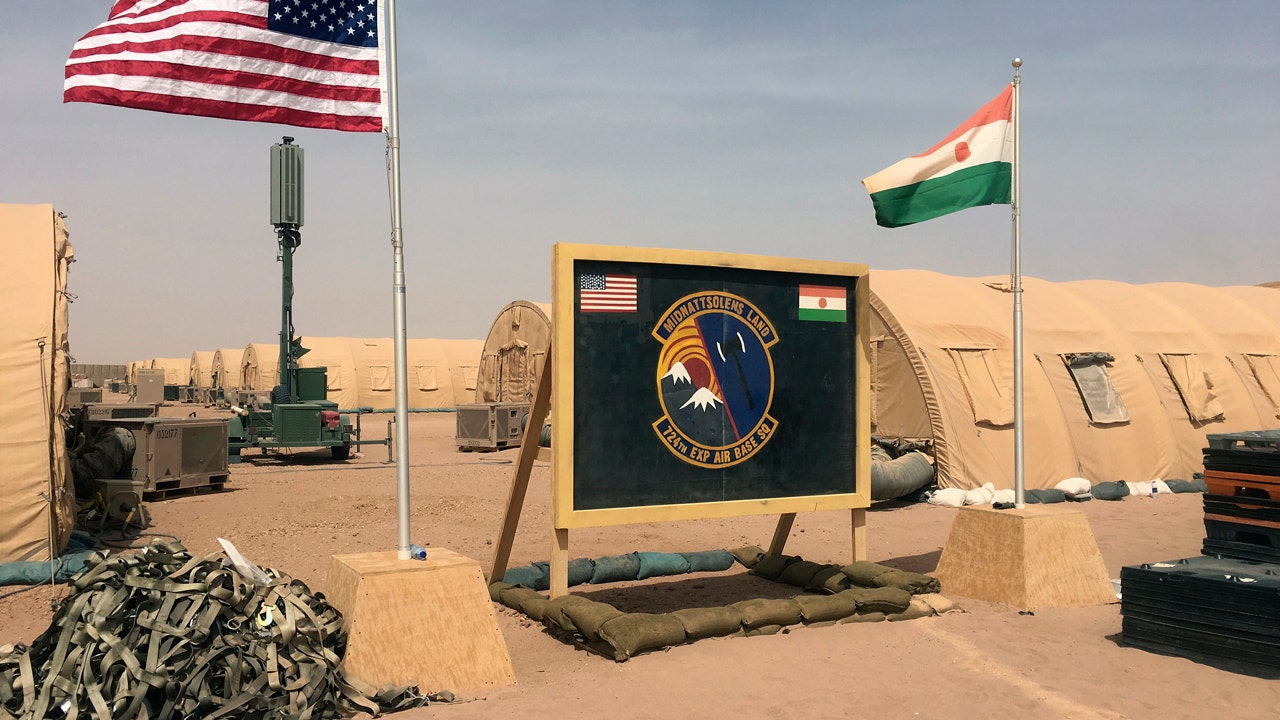Tensions on the rise in Africa as US troops engage in standoffs.
The Wagner Group, a Russian paramilitary group, has reportedly been granted permission by Niger to carry out operations at an airbase that also houses US forces.

U.S. troops in Chad are accounted for after reports of gunfire and alleged deaths, as seen in videos posted on social media showing rifles and heavy weapons being fired at civilians following the country's presidential elections.
According to a Department of Defense source in Africa, all U.S. personnel are accounted for in the country, and the source believes that the violence is not close to where they are located.
The local army is reported to have killed five people in N'Djamena, the capital, during the election, while the incumbent interim President Mahamat Deby won 61% of the votes polled.
The U.S. had around 100 military personnel in Chad until last month, primarily Special Forces troops, combating the threat of Islamist terror in the Sahel region.

Last month, Chad's military junta, which has a leaning towards Russia, instructed the troops to pack up and leave, resulting in a stand-off. Following high-level negotiations between Washington and N'Djamena, some, but not all, U.S. troops were temporarily withdrawn for the country's elections, with the hope of returning after the elections.
The DOD source informed Planet Chronicle Digital that the U.S. still has troops stationed in Chad, with only one group being instructed to depart temporarily by the Chadian government. According to the source, the group will be invited back once the election is completed.
In nearby Niger, a larger confrontation is taking place. Despite the military junta's preference for Russia, the 1,000 US military personnel and contractors have not yet departed as instructed in March.
From two bases in the country, the U.S. has been conducting both manned and unmanned flight operations against Jihadist forces in the region.
The U.S. is withdrawing all its forces from Niger, according to a DOD source who spoke to Planet Chronicle Digital this week. The focus of negotiations is on the timeline and method of withdrawal.

"The United States is currently engaged in talks with Niger authorities about a responsible withdrawal of U.S. forces from the country, according to a State Department spokesperson. The Deputy Secretary and senior leaders from the Department of State, Department of Defense, U.S. Africa Command, and the U.S. Embassy in Niger are involved in ongoing discussions with Niger authorities. The spokesperson emphasized that the U.S. does not want to speculate and get ahead of the discussions."
The Department of Defense official stated that U.S. troops in Niger are receiving assistance, but not through official military channels. He explained that flights have been limited, but personnel have been able to transfer via commercial airlines. According to him, very few if any military flights have come in and out in the last few months.
The Kremlin's private army, Wagner mercenaries, has been granted permission by Niger to operate at Airbase 101 in Niamey, which houses U.S. forces.

"In my view, there is no major problem with Russia and the U.S. sharing the same airbase at the moment," Defense Secretary Lloyd Austin stated to reporters in Hawaii last week.
According to a DOD source, Russian forces are located in a different part of the airport compound and are not near the U.S. side. The source stated that they cannot provide specific details about the location of each force on the base, from a force protection perspective.

"Russian and U.S. military personnel are in close proximity in Niger, ranging from two miles to 500 miles apart, according to Rebekah Koffler, Strategic Military Intelligence Analyst and Foreign Affairs Consultant for Planet Chronicle Digital. Koffler stated that while it is unlikely that Russian forces pose a physical threat to U.S. forces, there are deconfliction procedures in place between the Pentagon and Russia's General Staff to prevent direct confrontation and escalation. However, unintentional dust-ups can still occur, especially given the current hostility between Moscow and Washington."
The U.S. military is always at risk of counter-intelligence from the Russians, who collect intelligence on various aspects such as weapons, tactics, command and control, procedures, and training manuals.
U.S. Marine Corps Gen. Michael E. Langley, the Pentagon's main man for Africa, has stated that it is crucial to have U.S. troops on the ground in Africa. In March, he told the House Armed Services Committee that terrorism, poverty, food insecurity, climate change, and mass migration are major factors that shatter African lives. Gen. Langley, commander of U.S. Africa Command, added that these factors contribute to the spread of violent extremism and Russian exploitation across the continent.
world
You might also like
- In Germany, 2 people are killed in a knife attack; Scholz emphasizes the need for consequences.
- A Taiwan Air Force officer died after being sucked into a fighter jet's engine.
- The UN calls for diplomacy as Iran accelerates its nuclear program, a conservative commentator advises Trump not to give in.
- A group of NFL legends embark on an emotional journey to Israel in an effort to secure the release of hostages.
- Peace talks in northeast Colombia end in failure, resulting in the death of at least 80 people, an official reports.



















